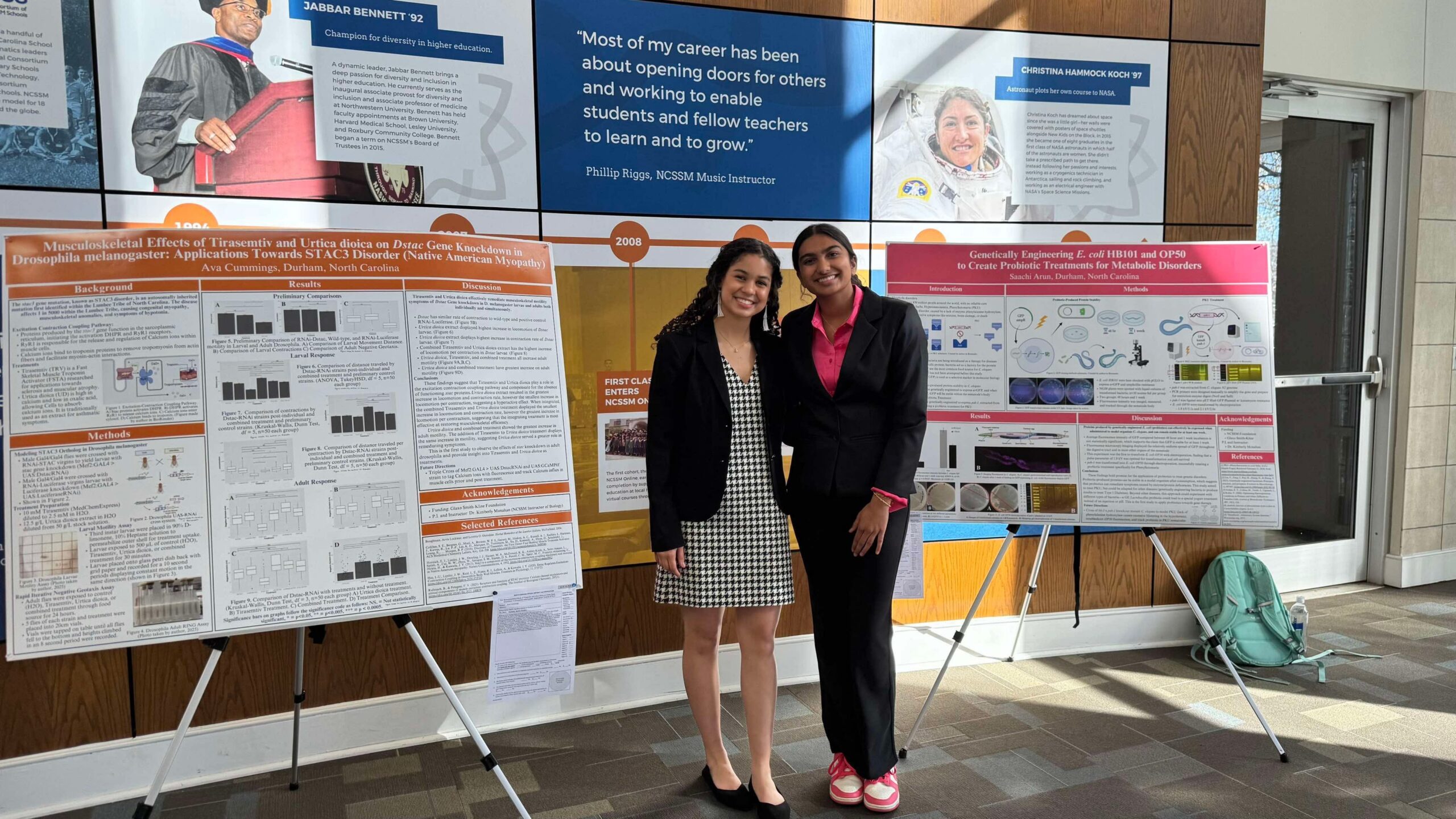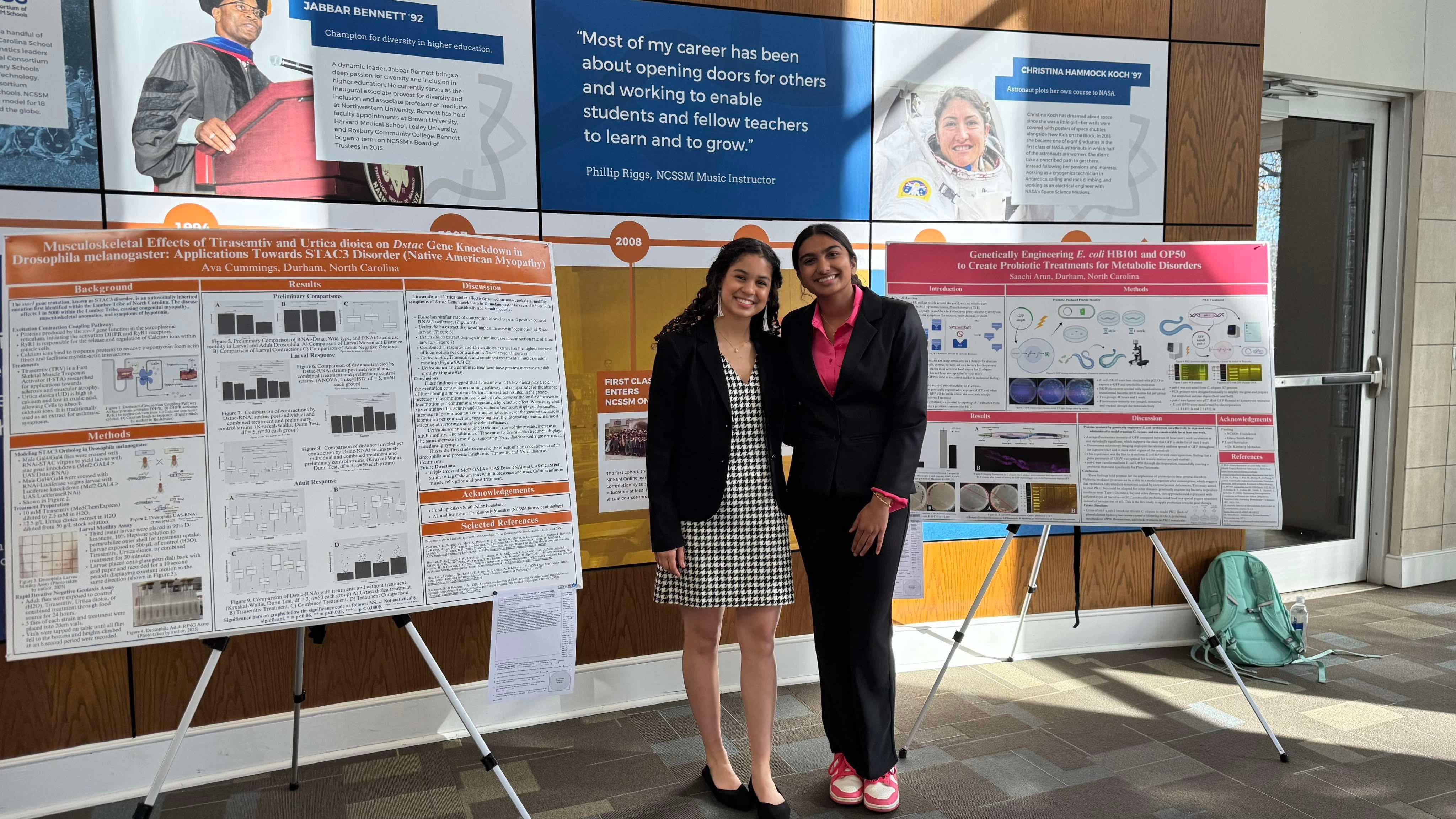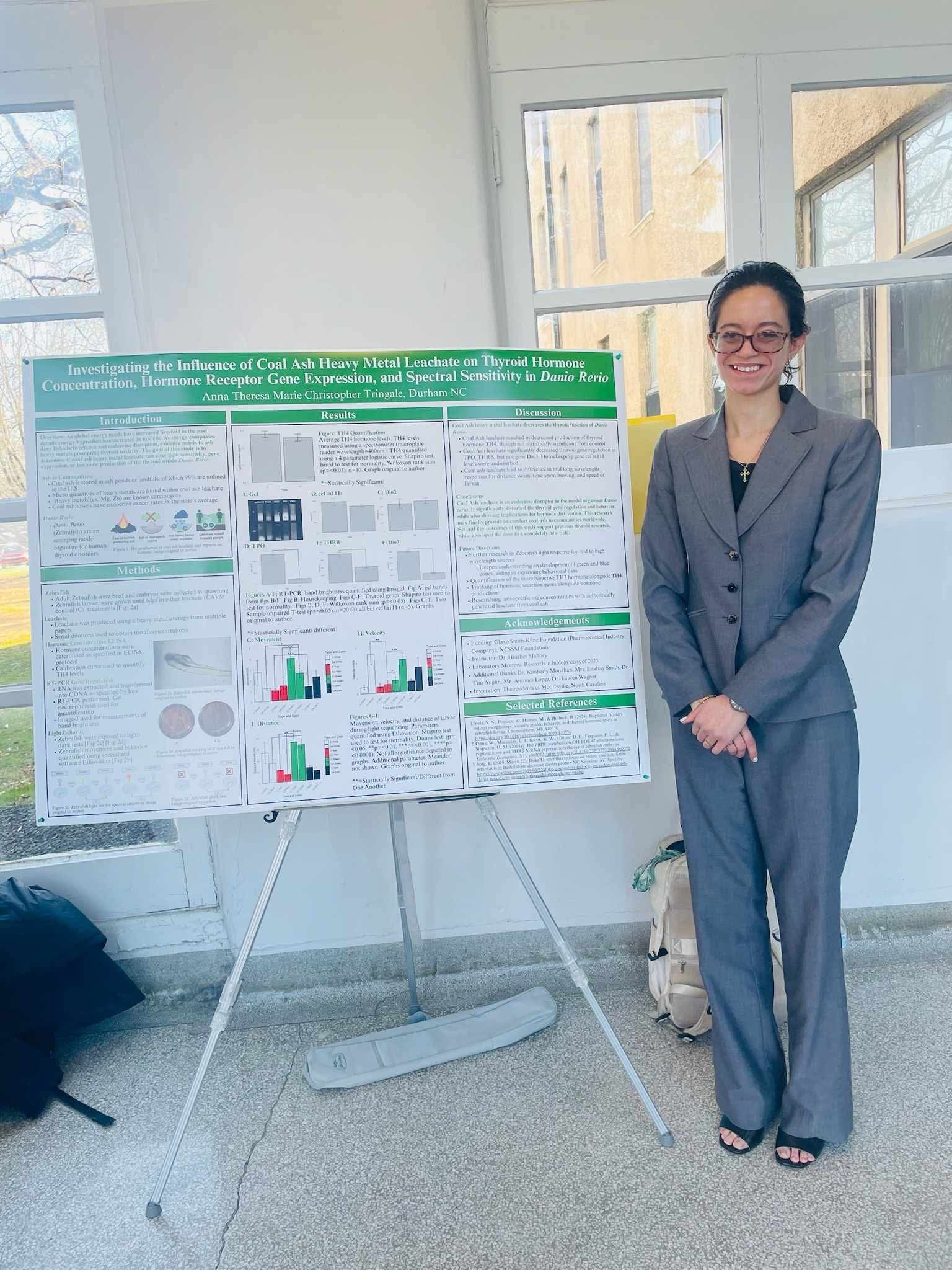By Mabel Kennedy, Stentorian Staff Writer
As you meander or perhaps rush to your classes through the Reynolds breezeway, your gaze will linger on the rather demanding mural of all the graced students who have won the achievement of being crowned a “top 40 finalist” in the Regeneron competition. Soon, our very own senior Ava Cummings’ ‘25 name will be highlighted.
For all those who don’t know, the Regeneron competition is a nationwide science competition for seniors, placing a particular emphasis on research. It is known as a “prestigious” competition as defined by their parent company. As Dante Tringale ‘25 states, “It is the largest and oldest science talent search in the country, where they look for the next leaders of the generation of scientific exploration.” They begin with all the applicants then slowly whittle down to the “Top 300 Scholars,” where you receive a $2,000 (unfortunately taxed) scholarship and an internship offer, and “Top 40 Finalists” where you can present your work along with a $25,000 scholarship (taxed too, sigh) and a chance to compete for higher prizes. Both tempting benefits are when deciding whether you want to submit your work.
As someone unfamiliar with the inner workings of the competition and miles away from the science community committed to achieving some sort of title within Regeneron, I had the chance to learn about the competition from a fairly unbiased point of view. What I found particularly interesting was their inclusion of the story behind the research when considering the students’ applications. They take this into account when reading the additional essays that applicants were required to write when submitting their research. Tringale ‘25 brought this to my attention during our conversation about the application process saying, “It’s a completely separate application process (not through the school), similar to a scholarship application you write additional essays about what you researched, why, and what your future contributions to science will be, as well as turning in the 30-page research paper.”
Your journey, if you so choose, might start through one of the various research programs our school offers, such as RBio or RChem, among others, or through an Independent Study. Either one has its benefits or disadvantages depending on the person or topic.`
I learned after spending my afternoon with Aretha Datta ‘25, a “Top 300 scholar,” that the competition wasn’t exactly the end goal for many students in NCSSM’s research programs. Regeneron wasn’t on the front burners, despite my impressions after passing by the large mural in Reynolds breezeway every day, I simply chalked it up to be another example of the school favoring science rather than encouraging interdisciplinary work and the inclusion of the humanities, something ever-present in my school life. However, I learned that their research was much more than that after hearing how they wanted to continue it in college, hopefully ending up benefiting their community. I also noticed, as I passed by all of the research presentations on February 19th, that most of the researchers began their work after noticing a humanitarian issue and wanted to make a change. I’ve actually noticed that it was the student’s passion for their topic that far surpassed the sponsor’s support in some cases.
When applying to NCSSM’s research programs, students are met with encouragement that no matter their background and previous experience, they have the opportunity to pursue research.


